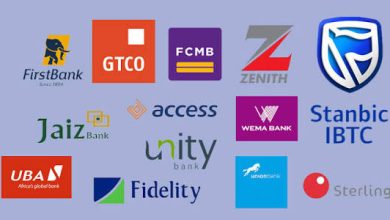Influencer Marketing Laws in Nigeria: What Every Influencer and Brand Should Know
From hidden ads to copyright and tax issues, here’s how Nigerian influencers can stay compliant and protect their brand.

Influencer Marketing Laws in Nigeria aren’t just fine print, they shape the game. One shout-out can sell out a store, while one careless post can drag a brand through the mud. The moment money changes hands, influencing stops being “just vibes.” It becomes business. And every business has rules.
So, are you an influencer, or a brand paying for influence? Either way, the law is watching. And in today’s Nigeria, ignorance of influencer marketing laws won’t save you when regulators or even angry followers come knocking.
The Legal Landscape (in plain words)
Influencing is now more than taking pictures or recording reels. It cuts across marketing, publishing, and sometimes even financial advice. This means different laws overlap: consumer protection rules, advertising codes, intellectual property laws, defamation laws, and Nigeria’s new data protection regime.
Sounds heavy? It doesn’t have to be. The idea is simple: post responsibly, disclose clearly, and keep your house in order.
Where Influencers Commonly Slip
1. Hidden Ads
Ever seen a post that looks like an honest opinion, but later you find out it was paid for? That’s misleading. If a brand pays you, followers must know. Failure to tag “sponsored” or “paid partnership” can land you in trouble with regulators and ruin trust.
2. Overpromising Products
If you hype a product with claims it can’t meet, “this cream clears pimples in 3 days flat!”, you’re setting yourself up. Consumers can report you to the FCCPC, and the brand may turn around to blame you.
3. Copyright Wahala
That hot new song trending on TikTok? Using it in a paid ad without clearance is risky. Copyright owners are getting stricter. Some send takedown notices; others demand cash. Better safe than sorry.
4. Defamation
It feels easy to “drag” a business online, but if what you post is false, you can be sued for defamation. Online words don’t disappear, they’re screenshots waiting to happen.
5. Mishandling Data
Running a giveaway? Collecting emails? Nigeria’s Data Protection Act applies. You can’t casually share or misuse people’s details. Data is a sensitive currency.
6. Tax Matters
Yes, your influencer income is taxable. The FIRS doesn’t care that it came via affiliate links or brand deals. If you’re earning, keep records.
Practical Habits That Save You Stress
- Be clear when you’re paid. Tag your ads. Followers respect honesty more than hidden deals.
- Sign simple contracts. Even a one-page agreement saves headaches later. It defines pay, content rights, and who handles complaints.
- Ask brands for proof. Don’t just repeat claims. Verify first, your name is on the line.
- Respect creative rights. Use licensed music, your own visuals, or confirmed stock.
- Guard follower data. Collect only what you need, keep it safe, and delete it when done.
- Document everything. Save receipts, invoices, and chats. Tomorrow, they’ll save you.
- Plan for mistakes. A complaint? Pause the post, respond calmly, and escalate properly.
Wrapping Up
Influencing in Nigeria isn’t just side hustle fun anymore. It’s a business. Treat it like one, and you’ll avoid plenty of wahala. Stay transparent, protect your followers, and put agreements in black and white.
That’s how you keep your brand clean, and your bank alerts rolling in.




